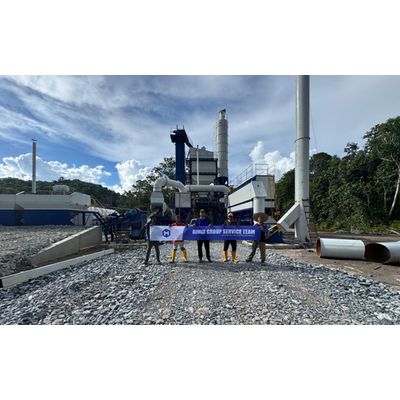


Feasibility of Hydrogen Energy in Power Systems of Asphalt Mixing Plants
As the asphalt mixing industry seeks more sustainable energy solutions, hydrogen energy has emerged as a promising alternative. With its potential to reduce greenhouse gas emissions and enhance energy efficiency, hydrogen could play a pivotal role in transforming power systems within asphalt mixing plants. This article examines the feasibility of integrating hydrogen energy into these facilities from various perspectives.
Advantages of Hydrogen Energy
Hydrogen energy offers several compelling advantages for asphalt mixing plants. First and foremost, hydrogen is a clean fuel that produces only water vapor when burned, making it an environmentally friendly option compared to traditional fossil fuels. For asphalt producers aiming to lower their carbon footprint, utilizing hydrogen can significantly contribute to achieving sustainability goals.
Moreover, hydrogen can be produced from a variety of sources, including natural gas, biomass, and even water through electrolysis. This versatility allows asphalt plants to adopt hydrogen fuel tailored to their specific operational needs and regional availability. For instance, stationary asphalt plants could benefit from hydrogen produced from renewable energy sources, aligning with global efforts to transition to cleaner energy systems.
Energy Efficiency and Performance
In terms of energy efficiency and performance, hydrogen energy presents significant advantages. When used in fuel cells, hydrogen can achieve higher efficiencies compared to conventional combustion engines. This translates to better energy utilization within asphalt mixing processes, where maintaining optimal temperatures is crucial.
For mobile asphalt mixing plants, the lightweight nature of hydrogen fuel can enhance operational flexibility. Hydrogen can be stored and transported easily, allowing plants to maintain consistent power supply even in remote locations. This adaptability is particularly valuable for projects requiring mobility and efficiency, such as road construction in challenging terrains.
Challenges and Considerations
Despite the numerous advantages, the feasibility of hydrogen energy in asphalt mixing plants is not without challenges. One of the primary hurdles is the current infrastructure for hydrogen production, storage, and distribution. While advancements are being made, many regions still lack the necessary facilities to support widespread hydrogen adoption.
Additionally, the initial investment for hydrogen systems can be substantial. Asphalt producers must consider the costs associated with converting existing power systems to accommodate hydrogen technology. However, as the market for hydrogen energy grows and technology advances, these costs are expected to decrease, making it a more accessible option for asphalt plants in the future.
Furthermore, there is a need for ongoing research and development to optimize hydrogen systems for the specific demands of asphalt production. Collaborations between industry stakeholders, research institutions, and government agencies can accelerate the development of efficient hydrogen solutions tailored to the asphalt mixing sector.
Conclusion
In conclusion, the feasibility of hydrogen energy in the power systems of asphalt mixing plants presents a promising avenue for achieving sustainable operations. With its clean-burning properties, versatility in production, and potential for enhanced energy efficiency, hydrogen has the potential to revolutionize the industry.
While challenges exist, particularly regarding infrastructure and initial investment costs, the long-term benefits of adopting hydrogen energy are significant. As the asphalt mixing industry continues to evolve and prioritize sustainability, hydrogen energy could become a cornerstone of modern power systems, paving the way for a greener future in asphalt production. By exploring this innovative energy source, asphalt producers can position themselves as leaders in the transition toward environmentally responsible practices.
